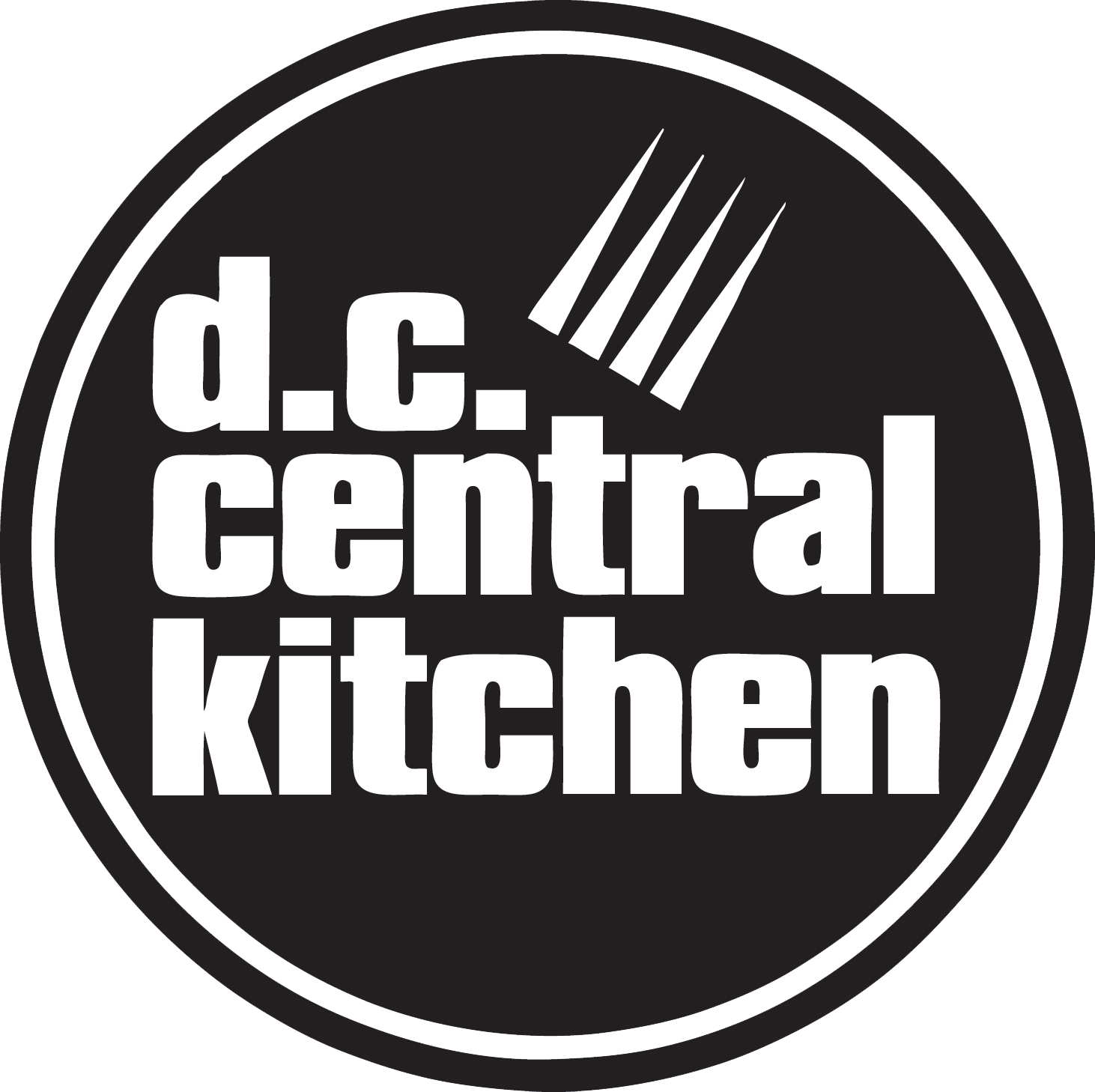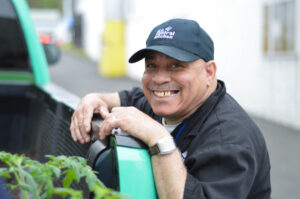
- About
- Programs
- Catering & Cafes
- Get Involved
-
-
Get Involved

-
-
-
-
- Contact
- Donate


DC Central Kitchen’s mission is to use food as a tool to strengthen bodies, empower minds, and build communities.
DC Central Kitchen (DCCK) is an iconic nonprofit and social enterprise that combats hunger and poverty through job training and job creation. The organization provides hands-on culinary job training for individuals facing high barriers to employment while creating living wage jobs and bringing nutritious, dignified food where it is most needed. DCCK’s social ventures include serving scratch-cooked farm-to-school meals in DC schools, delivering fresh, affordable produce to corner stores in neighborhoods without supermarkets, and operating fast-casual cafes throughout the District of Columbia.
We believe that hunger is a symptom of the deeper problem of poverty, and that food is our chosen tool for changing individual lives while addressing systemic failures.
We believe in the transformative power of a job, and that everyone deserves the chance to share in the dignity of work while contributing to our community.
We believe in building a more equitable food system that ensures access to healthy, dignified food and economic opportunity for all.
We believe that waste is wrong, be it the waste of nutritious food, productive minds, or charitable dollars spent on unsustainable, redundant, and ineffective efforts.
DC Central Kitchen was founded in 1989 by a young nightclub manager named Robert Egger. Frustrated and challenged by his volunteer experiences with traditional charitable responses to hunger and homelessness, Robert pioneered a new model aimed at liberating people from the conditions of poverty.
Robert’s idea for a ‘central kitchen’ involved picking up wasted food (which people said was unwise), turning it into balanced meals for shelters and nonprofits (which people said was unsustainable), and using that process to train jobless adults in the culinary arts (which people said was impossible). These concepts weren’t just possible. They were ahead of the curve. After turning the soup kitchen model on its head, Robert became an early adopter of ‘social enterprise’ and started hiring DC Central Kitchen culinary graduates to staff revenue-generating contracts in 1996.
He also instilled a proud ‘open source’ tradition at DC Central Kitchen, helping to start more than 60 like-minded central kitchens across the United States through the 1990s. In 2001, he launched another social venture, The Campus Kitchens Project, aimed at scaling our approach nationally by engaging college students in recovering wasted food from dining halls that they could use in preparing meals for their own community.
In 2004, Michael F. Curtin, Jr. joined us as our Chief Operating Officer. Curtin focused on building the social venture portfolio of DC Central Kitchen while Robert led national conversations about rethinking the fight against hunger and the economic role of nonprofits. In 2007, Michael became CEO and in 2008, he led the development of our Healthy School Food venture, a step that allowed DC Central Kitchen to double in size and impact in the face of a recession. In 2011, we launched the Healthy Corners venture, proving strong levels of demand for healthy food in low-income ‘food deserts’ and pioneering a new approach to increasing the quantity of nutritious items available on these small retailers’ shelves.
DC Central Kitchen has continued to forge ahead, showing up for our city when it has needed us most. We have provided life-changing culinary training to more than 2,200 adults facing barriers to employment, preparing them for careers in the hospitality industry. Our Healthy School Food program is in 30 DC schools, providing breakfast, lunch, and supper for the children of our city. The program has received national recognition from numerous observers, including the Golden Carrot award for plant-based school food innovation. Our Healthy Corners program brings fresh produce to 54 corner stores serving 15,000 food insecure shoppers in the most underserved areas of our city and continues to grow.
In addition to receiving two White House Champion of Change Awards, our successes have also been featured by respected outlets like The Today Show, the Oprah Winfrey Show, National Geographic, the PBS NewsHour, The Atlantic, The Washington Post, The New York Times, and The Chronicle of Philanthropy. We have also earned a perfect 100% 4-star rating from Charity Navigator.
In 2023, DC Central Kitchen moved out of the basement of the Federal Shelter into our transformational new headquarters at The Michael R. Klein Center for Jobs and Justice in Southwest DC, establishing the nation’s most ambitious community kitchen and urban food hub. With the generous support of our community, we continue to feed the soul of our city and will keep fighting until we are no longer needed.
Follow along on our journey of turning the soup kitchen model on its head by visiting our interactive timeline.
Two books about DC Central Kitchen are in print and available through online booksellers:
“In Begging for Change, Robert Egger looks back on his experience and exposes the startling lack of logic, waste, and ineffectiveness he has encountered during his years in the nonprofit sector, and calls for reform of this $800 billion industry from the inside out.”
The Food Fighters: A History of DC Central Kitchen, by Alexander Justice Moore (2024).
“Written by an organizational insider, this expanded second edition of The Food Fighters shows how DC Central Kitchen’s path-breaking approach to combating the root causes of hunger is more relevant today than ever before. Packed with practical perspectives from award-winning nonprofit professionals, inspiring first-hand accounts from survivors of homelessness and incarceration, and the exclusive insights of high-profile partners like José Andrés, Spike Mendelsohn, Craig Newmark, and Michael R. Klein, The Food Fighters equips readers to take on hunger in their own communities while challenging traditional notions of what it means to do good.”
In 2024, DCCK generated more than $130 million for the DC economy